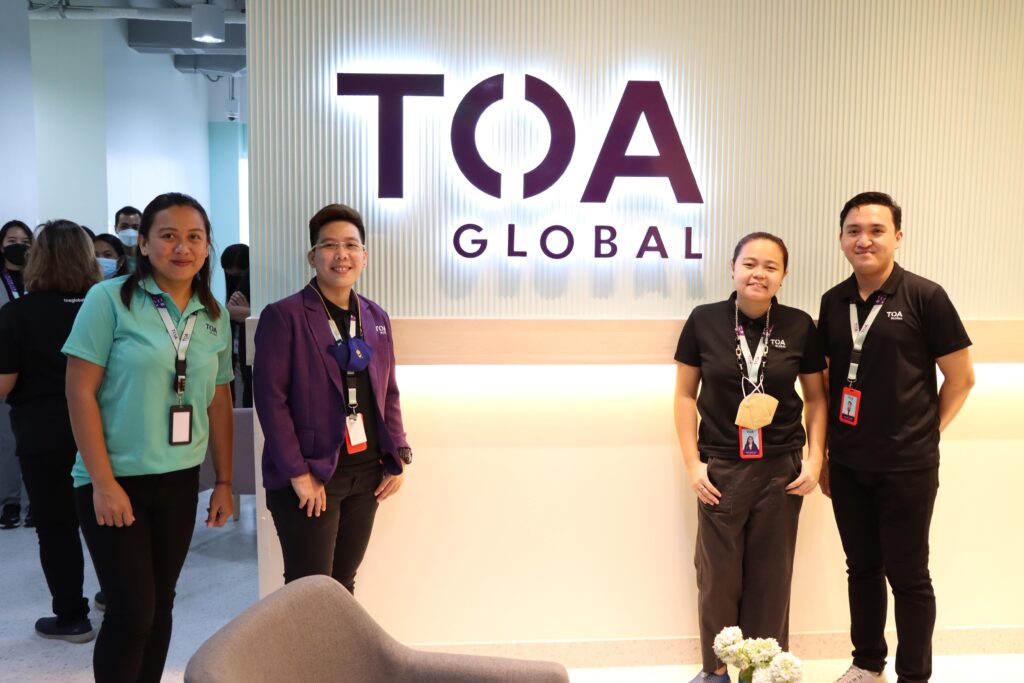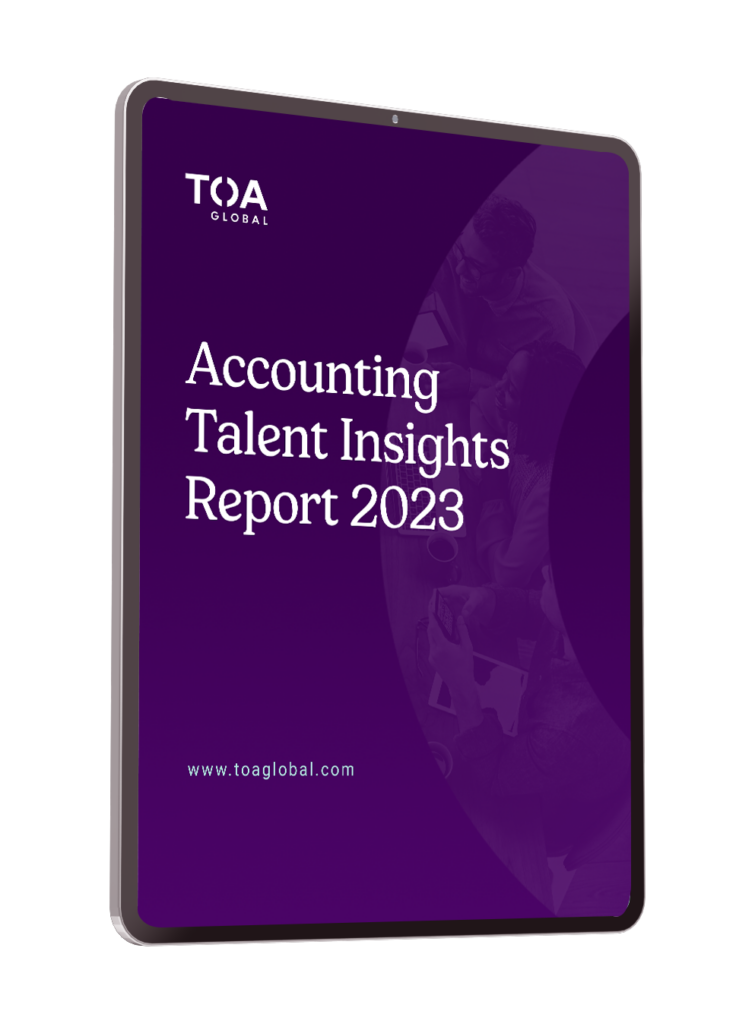In a shifting and increasingly complex business landscape, accounting firms in the U.S. are constantly seeking innovative ways to thrive.
As the demand for expert financial services and advice grows, so does the pressure on accounting firms to deliver high-quality results while keeping their operations lean.
Business Process Outsourcing (BPO) continues to find favor as a strategic and non-traditional solution for accounting firms that want to gain additional capacity, become more profitable, and access specialized expertise.
However, the decision to embrace offshoring can raise some questions. Here we’ll address five of the most important ones, offering answers to help accounting firms navigate this growing alternative staffing solution.
Question 1: Will there be language and cultural barriers?
Effective communication anchors any successful working relationship. Language barriers can lead to misunderstandings or errors and cause clients to feel dissatisfied.
To address this, firms looking to work with BPOs or offshore need to prioritize hiring accounting talent with strong English language skills while establishing clear communication practices and expectations.
As an offshoring location, the Philippines has long been recognized among the top English-speaking countries globally, with a large population fluent in English. This linguistic advantage eliminates language barriers and allows for clear and concise global team communication.
Outsourcing locations like India also have a significant English-speaking population, but this region takes 52nd spot in the global English Proficiency Index, compared to the Philippines, which is at the 22nd spot.


Cultural understanding is a second key element that creates a collaborative work environment. Encouraging open communication channels and providing cross-cultural training to onshore and offshore teams can help bridge any potential gaps and promote better teamwork.
These priorities, coupled with the use of collaboration tools and regular virtual meetings, can help assimilate staff even further.
When you find a global talent provider who trains your offshore team in North American accounting standards and cultural nuances, while offering cultural overviews for your onshore team as well, you’ve found a winning formula.
Question 2: How will we manage the additional legal and regulatory considerations?
Ensuring compliance with local laws and regulations is essential when outsourcing accounting processes. Firms will experience greater ease when they meticulously select BPOs operating in countries with a well-established legal system and strong regulatory framework.
The Philippines has a supportive business environment that has established the country as a global hub for outsourcing, including accounting services. The government recognizes the sector’s economic benefits—the IT and BPO industry was the second-largest source of foreign exchange earnings in 2022.
Public support is evident in incentives and infrastructure development programs aimed at making it easier to offshore to the Philippines.
It’s also wise to choose a provider that has spent at least a decade in the country where you intend to offshore because they’ll be familiar with labor relations, trade, and local government requirements. You’ll want to partner with a company that is known for taking great care of employees, so your business can enjoy the stability that comes from retaining top talent.
Data Privacy and Security Concerns
As growing data breaches worldwide have highlighted, protecting sensitive financial data is critical. Before partnering with a BPO, accounting firms need to conduct thorough due diligence to ensure their data is handled with the utmost confidentiality. Strict data security protocols and encryption measures must be in place to further safeguard critical information.
In the Philippines, the government has implemented policies to ensure data security, intellectual property protection, and compliance with international regulations as written in the Data Privacy Act of 2012, giving businesses peace of mind when outsourcing accounting work.
Question 3: How can accounting firms maintain consistent quality standards when working with a BPO?
Ensuring consistent quality standards
The Philippines boasts a vast pool of highly skilled accounting professionals. Accounting as a profession reached its centenary in March 2023. The country’s education system emphasizes accounting and financial education, producing many highly skilled graduates. By outsourcing accounting work to the Philippines, businesses gain access to a talent pool that possesses a deep understanding of accounting principles.
After securing quality through top-tier talent, maintaining this consistently is the next step to securing client satisfaction.
When working with a BPO, clear performance metrics plus regular evaluation and feedback will help ensure steady high-quality work. An offshoring partner that is dedicated to the accounting industry and provides staff trained in U.S. standards and embedded staff performance reviews will take your team and client service to the next level.
For a closer look at how firms can find elite offshore accounting talent, you can download our Accounting Talent Insights Report here.

Investing in proper training and supervision
Investing in comprehensive training programs is essential to equip staff with up-to-date skills and knowledge and as part of a long-term people retention strategy. Regular training sessions and ongoing supervision are vital for upskilling and fostering professional growth.
No two BPOs are the same. When it comes to learning and development, you will find that there are different levels of training and supervision on offer. At TOA Global, for example, we provide role-aligned training and professional development as well as upskilling for onshore teams through our learning division, Ab² Institute of Accounting.
“Giving your team the right tools to succeed is critical,” said Nick Sinclair, founder of TOA Global and Ab² Institute of Accounting.
“If you look at professional athletes, yes, they’re great athletes but they also have the right facilities, the right training, and the right tools to succeed. It doesn’t matter where you are, in any role, you need to know what success is.”
Question 4: Will our client relationships be affected?
Clients understandably can have concerns about data security and the quality of service when offshoring is involved.
The keys to acceptance are transparency coupled with exceptional quality work, data security, and consistent compliance – to name just a few.
If your firm provides tax preparation services, you must inform your clients and obtain their consent before their tax return information can be shared with someone in your offshore team. This will keep you compliant with Internal Revenue Code section 7216.
Clients are looking for the greater value your firm can provide and as that is increased through your offshoring efforts, then they will support you.
As McKinsey and Company notes, “Companies used to outsource business processes primarily as a cost-saving strategy. Today, companies outsource to capitalize on sophisticated provider offerings, including customized industry solutions and advances in digital technology, such as Artificial Intelligence, analytics, and machine learning.”
Read more in: What Will Clients Think Of Your Outsourcing Strategy?
Question 5: Can I see an example of an accounting practice that has successfully added an offshore team?
Jonathan and Shannon Badger provide controller and Chief Financial Officer (CFO) services, as well as compliance and tax planning, to a growing list of clients. They began offshoring based on a consultant’s advice, and doing so allowed them “to bring on some capacity pretty quickly.”
“It was hard to grow our business when we were so busy with all the client work that we had. We had a lot of needs. We were trying to interview and hire and invest in technology,” Jonathan recalled. “Shannon and I didn’t have enough time to do all the things we needed to do.”
So, Badger CPA began offshoring in the last quarter of 2018, with one offshore team member in the Philippines and another with a company in India. “Both team members were wonderful, but the process and communication with TOA Global worked better for us. It was a better fit,” Shannon said.
At the time of the interview, seven of the firm’s 20 team members were offshore, while the rest worked with their office in San Antonio, Texas.
To make offshoring work, the couple recommends:
- having a job description for each role;
- clearly documented processes and an introduction to your firm;
- setting clear expectations;
- a cloud-based workflow system; and
- frequent communications, including a weekly scorecard and regular one-on-one talks.
Jonathan and Shannon began by offshoring their bookkeeping, data entry, and bank reconciliation tasks. “This has expanded so that our offshore team members now do pretty much everything our onshore team does. They’re not treated differently. We are thrilled with the amount of responsibility that they’ve been able to take on.”
Badger CPA is an Inc 5000 honoree for 2022 and made it to Accounting Today’s prestigious list of the Best Small Firms to Work For in both 2022 and 2023.
If you’re considering outsourcing and are not sure where to start, you can read the below:
Kick off the Accounting Outsourcing Process in 5 Easy Steps: Which Model of Outsourcing is Right for You?
In the evolving accounting landscape, outsourcing is a proven solution that can help firms address capacity challenges, grow more profitably, and attract and keep skilled accounting staff.
By carefully selecting reputable accounting talent providers, firms can harness the benefits of offshoring while protecting their clients’ data. Offshoring provides cost savings and enables firms to focus on higher-value tasks and strategic next steps that unlock more growth.
As the industry continues to transform, accounting firms can embrace offshoring as a valuable tool to thrive in a complex and competitive market.
If you’d like to learn more about hiring experienced global accounting talent or offshoring, please reach out to us here.
With TOA Global you’ll get
Job-ready offshore accounting professionals available immediately

Experts in all things accounting
TOA Global is celebrating 10+ years dedicated to serving the accounting industry with elite talent in the Philippines.

Each role carefully shaped and developed
Empowering your staff with role-aligned training and career development.

Sensitive information and data kept secure
Advanced security platforms and training focused on your needs.

Support as and when you need it
Dedicated client support through 24/6 service including live chat and knowledge base articles. 360° team management and engagement through a custom-made people management platform.
More about TOA Global
TOA Global is so much more than a BPO. We helped over 1,000 international firms grow on their own terms by adding elite offshore accounting talent to their teams. With over 10 years of exclusive service to the accounting industry, we have helped more than 3,700 accountants and bookkeepers in the Philippines find more rewarding careers.
For firms that want to stay updated on the latest developments in talent acquisition, people management, and training for your accounting firm, check out our monthly newsletter, Firm Forward. We regularly explore these and other offshoring and accounting industry trends.




















